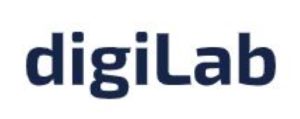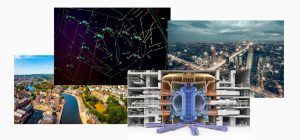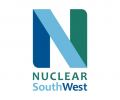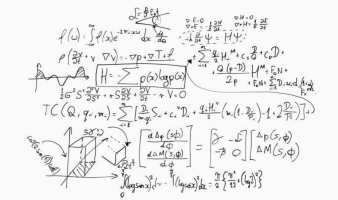 digiLab is an agile, probabilistic machine learning and data science company providing world-leading solutions. The company is driven by sustainability and net zero missions. They work across the water, aerospace, and energy sectors—including both fusion and fission—providing collaborative consultancy services, software solutions, and training.
digiLab is an agile, probabilistic machine learning and data science company providing world-leading solutions. The company is driven by sustainability and net zero missions. They work across the water, aerospace, and energy sectors—including both fusion and fission—providing collaborative consultancy services, software solutions, and training.
What is probabilistic machine learning and uncertainty quantification?
Probabilistic machine learning is based on the principles of probability and statistics. It identifies the patterns in data and measures their uncertainties providing uncertainty quantification (UQ).
UQ is akin to confidence indexing. It quantifies and analyses uncertainty in mathematical models, simulations and data to assess the reliability of predictions. Understanding the uncertainty level enables experts to utilise a model’s output with confidence.
digiLab are experts at unlocking the value in data and models to empower decision makers and experts. Their proprietary software, twinLab, provides no-code access to advanced machine learning methods, meaning engineers and scientists can employ them independently. It even allows you to run machine learning algorithms from a Microsoft Excel spreadsheet.
digilab’s approach in the nuclear field
Fusion: Impact through Experimental Design
Designing a fusion reactor is an engineering task full of uncertainties, from material behaviour to plasma control and the complex interaction of the system. Measuring and tracking uncertainties throughout the research and design process allows scientists and engineers to move forward with known levels of confidence.
In 2022, digiLab proudly became the UK Atomic Energy Authority’s (UKAEA) five-year strategic partner in uncertainty quantification. digiLab has already wrapped several UKAEA workflows with UQ, addressing key fusion challenges in the areas of tritium desorption, gyrokinetics, electromagnetics, control and material research. The value of embedding UQ as an engineering tool is evident in the results: digiLab’s surrogate model for tritium management sped up the computation by an order of a million while retaining accuracy within two percent.
Fission: Impact through Optimisation 
Decommissioning nuclear fission reactors is an important, expensive, and potentially dangerous activity. The existing reactor sampling strategy required large numbers of expensive samples to achieve statistical confidence. Jacobs, who have decades of decommissioning experience including Fukushima, Chornobyl and Oak Ridge, approached digiLab to help improve their sampling method.
digiLab developed a sampling method that incorporates expert opinion alongside the data. This method reduced the samples required while maintaining the same confidence level in the process. The outcome was a 50% reduction in the number of characterisations required, saving £250,000 per building while enhancing the safe disposal of contaminated materials.
These are just a couple examples of how digiLab are contributing to the nuclear sector. They love a challenge and provide consultancy services to work closely on first-of-a-kind solutions. They also offer training in machine learning and UQ through the digiLab Academy.
Head to their website or contact Amanda Niedfeldt to find out more.

